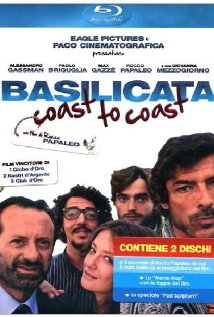Plot
Nicola Palmieri is a high school math teacher who feels unsatisfied with his job. A music enthusiast, he is the leader of a local band from Maratea, other members include guitarist Salvatore Chiarelli, a medical student who fails to graduate; double bass player Franco Cardillo, a carpenter unable to speak following the death of his fiancée; percussionist Rocco Santamaria, Salvatore's cousin and TV personality in decline. The quartet signs up for the Music Theater Festival in Scanzano Jonico, naming themselves "Le Pale Eoliche" (The Wind Turbines). They plan to cross Basilicata from the Thyrrhenian to the Ionian coast. Nicola suggests to leave 10 days earlier going by foot, meanwhile trying to find a life purpose they seem to have lost.
They are followed by a local church TV crew along with journalist Tropea Limongi, daughter of a local politician. During their long trek, the group walks through little-known backroads, with only a small wagon pulled by a white horse to transport supplies, instruments and two tents. They also rehearse the songs they are going to perform at the festival, with impromptu concerts in small villages they walk by. The journey proves to be therapeutic for everybody: Salvatore finds the will to complete his studies; Rocco has a new job; Franco starts to talk again, uncovering a deep feeling for Tropea; Nicola finally completes one of his projects, showing his wife he is able to be an assertive man.
This page is based on this
Wikipedia article Text is available under the
CC BY-SA 4.0 license; additional terms may apply.
Images, videos and audio are available under their respective licenses.
